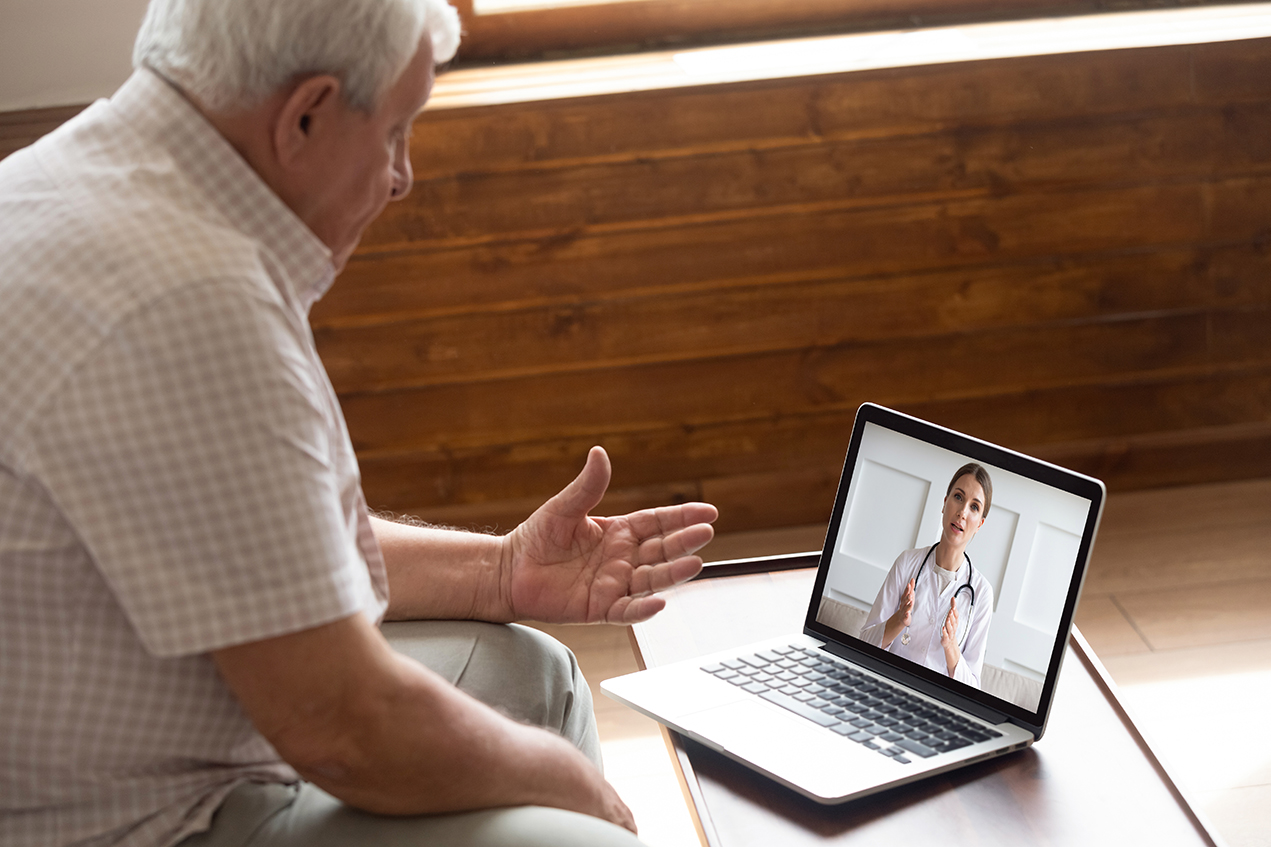As adults get older, it is important to make regular medical visits to maintain good health. But older adults, and especially those with underlying health conditions, are particularly vulnerable when it comes to developing serious complications related to COVID-19. Because of this, the staff and administrators at Keck Medicine of USC have made several changes to help make sure older patients are getting the medical attention they need while offering protections from unnecessary risks.
At the onset of the pandemic, Keck Medicine quickly moved to have all health care providers credentialed to practice telehealth. Though the virtual visits are open to all patients, it is particularly important to continue to treat older patients and those with serious health conditions through this crisis.
“We know that COVID-19 is going to hit the most vulnerable the worst,” said Jehni Robinson, MD, a family medicine physician at Keck Medicine and chair of the Department of Family Medicine at the Keck School of Medicine of USC. “It’s really important right now that we are still in contact with those patients and doing everything we can to make sure that they have their medications, that their conditions are under control.”
The Keck Medicine team enlisted the help of students from the medical school and physician assistant program to work with primary care providers to reach out to geriatric patients. The students contacted these patients to share information about the availability of telehealth appointments with their primary care providers and to inquire about any concerns they have that could be relayed to their provider.
Helping older patients through the stress of isolation is another concern that Keck Medicine has asked students to help address. Students from several health care programs were paired up with older patients for daily phone chats to offer comfort and companionship, and to provide resources to patients who are struggling with other issues, such as how to get food when they don’t want to go out and how to use technology to stay connected with family and friends.
For USC Trojan Care EPO and USC PPO plan members, the USC Premier Care program phoned vulnerable patients to encourage them to work with a primary care doctor to manage their chronic conditions while they are in isolation.
Bonnie Olsen, PhD, a clinical psychologist and professor of clinical family medicine at the Keck School, added that all patients, not just the elderly, also can schedule telehealth visits with psychologists and social workers to help them deal with the emotional impact stemming from isolation that many are experiencing.
For those patients who were admitted to the hospital, physicians quickly learned that setting aside more time for communication is important in treating patients with COVID-19. Particularly with older patients, noted Michael Wang, MD, director of hospital medicine at Keck Hospital of USC and clinical professor of medicine at the Keck School, it is important for the doctors to talk to their patients early on, both to educate patients about the disease and make sure they understand the treatment options they may face down the road.
Likewise, clinicians are setting aside more time to communicate with family members who cannot visit. “We have to build in more time to make that extra call or arrange for a video chat,” Wang said. “Patients are undergoing this disease with less support due to visitation restrictions and so we are trying to accommodate that change and, as health care providers, be there for the patient.”
— Hope Hamashige


